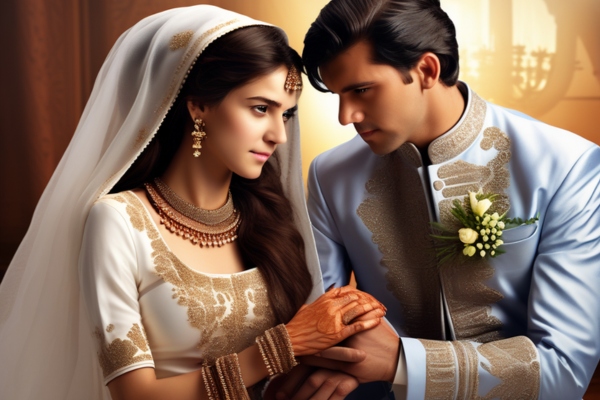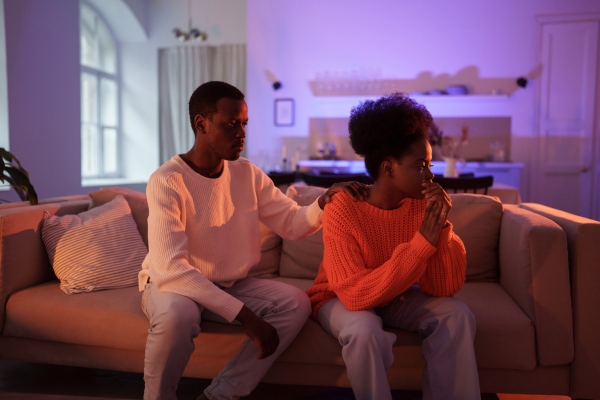Arranged vs. Love Marriage
“Marriages are made in heaven.” This age-old adage captures the complexity behind one of life’s most important decisions – who to share the journey of life with.
The aisles of matrimony stretch out in divergent directions, with the time-honored tradition of arranged marriages on one end, and the romantic notion of love marriages on the other. As modern Indian youth stand at this crossroads, the path ahead is often paved with the confusion and fear of making the “wrong choice.”
However, through deeper analysis, one finds that the binary classification of arranged and love marriage fails to capture the nuances of reality. By understanding the intricate interplay of choice, compatibility, family, culture, and personality involved in these multifaceted decisions, we can map our routes with greater clarity and confidence.
The Thunder of Tradition – Understanding Arranged Marriages
Despite the whisper of modernity, arranged marriages remain the thunderous heartbeat of Indian society. accounting for over 90% of unions. This time-hallowed tradition matches individuals based on horoscopes, family backgrounds, and expectations. rather than prior romantic interest.
However, dismissing arranged marriages as coercive elopes crucial advantages regarding compatibility. familial support and reduced marital disillusionment.

The Advantages of Arranged Marriage
1. Shared Values and Backgrounds
Arranged marriages emphasize compatibility factors that foster strong foundations – shared family values. similar subcultures and concordant life visions.
Studies demonstrate that such value congruence directly correlates with higher marital satisfaction. By evaluating these factors, the unique support structure in Indian joint families can guide youth towards matches with greater chances for a stable. peaceful journey of life.
2. The Safety Net of Family Support
Perhaps the most definitive advantage of arranged marriage is the lifelong support and guidance offered by relatives. Parents invest significant time and effort into finding matches suiting their children’s temperaments and future aspirations.
This personal investment translates into active efforts by both families to ensure a smooth transition for the new couple despite early challenges. Sociological studies reveal that the embeddedness in family networks gives arranged marriages a definitive edge in weathering the storms of marital conflict.
3. Fulfilling Social and Cultural Expectations
Indian society rests upon the bedrock of family interdependence and collectivist obligations. For many youth, romantic love plays second fiddle to fulfilling their filial and social duties. Arranged marriages provide refuge from the crushing weight of failing to adhere to inherited values.
They meet socio-cultural expectations regarding caste. economic parity and family approval. This ‘certified stamp’ of family and community offers psychological relief and social acceptance to conform to relationally oriented identities.

The Disadvantages of Arranged Marriage
1. Absence of Romantic Connection
Perhaps the Achilles heel of arranged marriages lies in the lack of emotional and physical intimacy between unfamiliar partners. Starting a new journey with a stranger often breeds anxiety, emotional turmoil and communication barriers.
The gradual progression from awkward formality to affectionate informality poses a towering challenge. Disillusioned by Bollywood portrayals of romance. newlyweds grapple with reconciling their expectations with reality. Often this disconnect sows the early seeds of marital discord.
2. Tightening Familial Apron Strings
Ironically. the prime advantage of family support within arranged marriage can also morph into a choking disadvantage. As the adage goes “familiarity breeds contempt.” Close family ties may lead to unwanted opinions, gossip and interference in personal matters ranging from parenting style to work decisions.
New couples struggle to set boundaries and voice their authentic preferences amidst loud familial voices staking claim over their independence. Resentment ferments, leaving relationships consumed by perpetual tension.
3. Lack of Personal Choice
The final blow against arranged marriage lies in the utter lack of individual choice and corresponding feelings of powerlessness. With the most personal decision of their lives made by others, individuals enter matrimony mired in helplessness rather than joy.
This perceived loss of autonomy contradicts the human desire for free will. Especially among modern youth. bred on ideals of independence and equality. Simmering discontent threatens the marital commitment to lifelong partnership signified during wedding vows.
Understanding Love Marriage
While arranged marriages claim the throne of historical precedence, the tides of radical romanticism continues to surge through modern Indian society. Celebrating free choice. the conception of love marriage stems from premises of emotion, passion and agency in finding one’s ‘soulmate.
However, the boats of love marriage also encounter storms during their voyages, despite the magnetic pull of initial attraction and newness.

The Advantages of Love Marriage
1. The Thunderbolt of Romantic Connection
Contrasted with arranged matches. love marriages bask in the glow of romantic excitement, intimacy and mutual infatuation during courtship.
The sweet madness of love bred by that magical combination of pheromones and dopamine directs couples towards matrimony based on powerful subjective emotions rather than objective calculations. Researchers reveal that assessing romantic chemistry and attachment styles can predict early marital happiness – an intuitive strength of love marriages.
2. United by Dreams and Aspirations
Another boon for enduring marital success lies in aligning visions for the future. Love marriages allow couples to organically converge based on shared interests. passions and life goals.
Romantic partners mutually shape their developmental trajectories across courtship and early marriage to consciously build towards shared objectives. This ability to handcraft holistic life visions draws lovers down the aisle towards a future glowing with promise rather than uncertainty.
3. The Freedom of Choice
At its core. love marriages exemplify the human right to choose a life partner through the exercise of intellectual and emotional autonomy. Unfettered by familial and social obligations, individuals can embark on profound journeys of self-discovery to determine compatibility.
For modern youth enamored with individualism, the agency and ownership over selecting a partner far outweighs adhering to traditional matchmaking. Despite associated hurdles, they view romantic choice as the ultimate vehicle for self-expression.

The Disadvantages of Love Marriage
1. Weathering Familial and Societal Disapproval
Sadly, the most natural human desire of romantic connection often wields the heaviest hammer of judgment for couples in love marriages. Flouting views on legitimacy, status and background frequently leads to major fallouts with immediate and extended family members.
Ostracized from filial support networks, couples are left emotionally isolated and socially excluded. The uphill path to regain family approval and stable community status exacerbates the precarity of financially burdensome early years of marriage.
2. Challenges of Managing Idealistic Expectations
Once the glittering haze of romance fades, the impracticality of living up to lofty marital ideals often leads newlyweds to harsh reality checks. The passion celebrated by films and media finds it difficult to withstand mundane domesticity. Unmet expectations regarding intimacy, personality and interests usually fuel arguments.
Especially for couples isolated from external guidance, learning to adjust expectations, communicate openly and compromise thoughtfully comprise difficult lessons altering the marital terrain unexpectedly.
3. Navigating Financial and Background Inequities
Practical impediments related to educational, socioeconomic and religious differences also abound in love marriages despite initial willingness to transcend these identities. Spouses and in-laws frequently realize the hassles of reconciling disparate lifestyles.
Couples making independent marital decisions bear the painful brunt of overcoming complex obstacles to coordinate their vision for family and future without a supportive scaffolding. Instead of drawing strength from families during common early marital stresses, they often flounder alone.
Beyond the Binary – Exploring the Third Space
Dissolving dichotomies reveal that the vast expanse of reality lies in uncovering nuanced solutions combining the merits of arranged setups and romantic aspirations.
The growing popularity of semi-arranged marriages or assisted love marriages demonstrates the appeal of amalgamation. Here, families help identify potentially compatible partners but center individual choice by respecting romantic preferences during spouse selection.
Other couples immerse themselves in lengthy relationship trajectories allowing organic emotional convergence guided by conscious filters of background checks and core value alignment. By dismantling false binaries, we open doorways to optimal balancing between the institutional wisdom of elders and the intellectual autonomy of youth to contour futures fortified by both love and purpose.
Conclusion:
The discourse surrounding marital choices usually swings between two extreme poles, positioning arrangements as pragmatic but robotic and love marriages as impulsive and irrational.
However, the psychological and social processes underlying these multifaceted decisions reveal a zone of increased complexity and nuance. As modern individuals meander between the fluid shades of tradition and modernity, practicality and sentimentalism, perhaps the most astute strategy involves mining our unique circumstances and priorities to make informed choices aligned with both heads and hearts.
Beyond externally imposed labels, marriage constitutes a profound journey of interpersonal growth. By reflecting inwards, we can chart routes that speak to our truest selves and deepest human needs for love, purpose and belonging.


